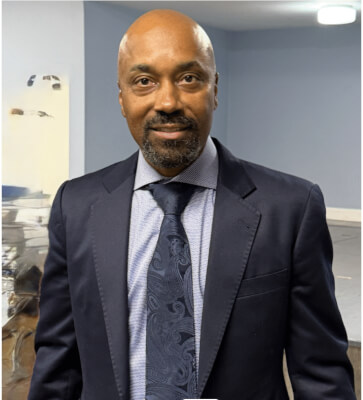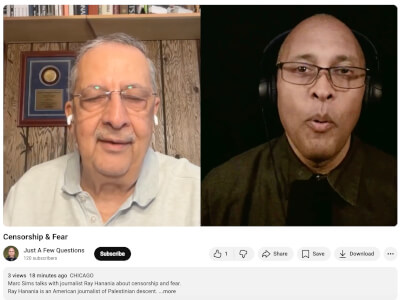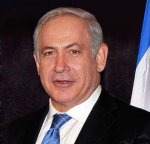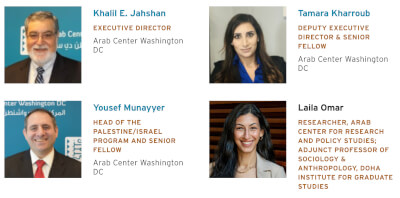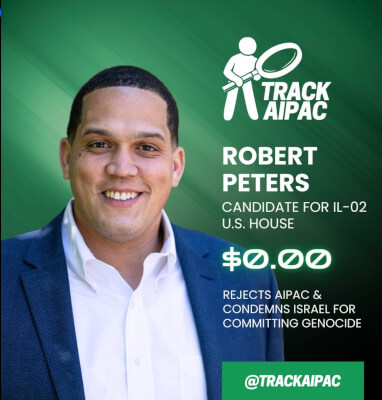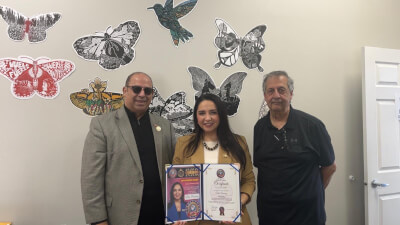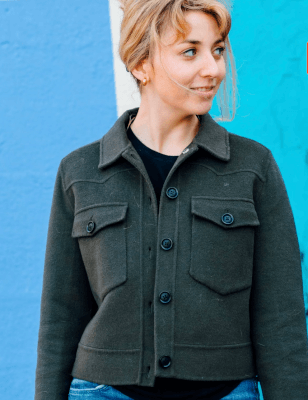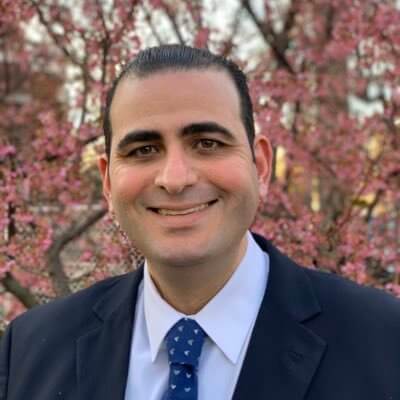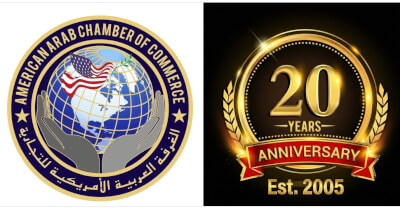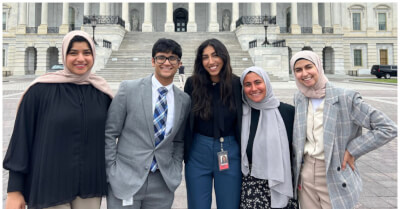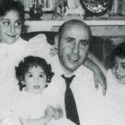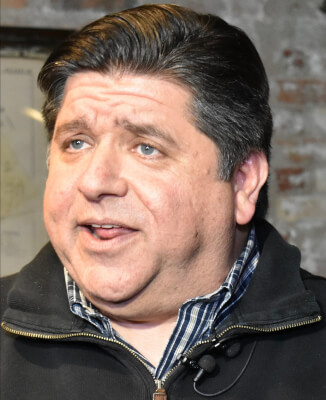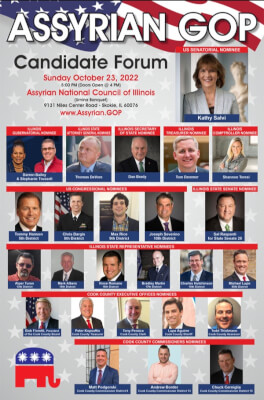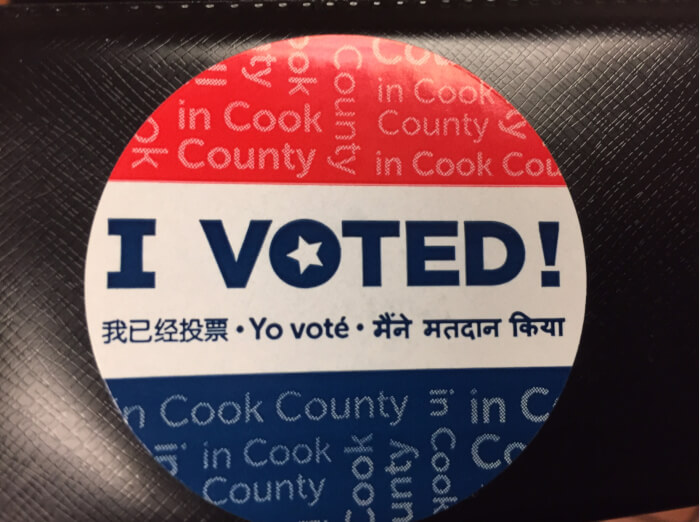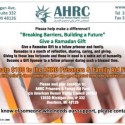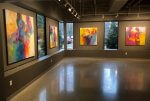
Click here to subscribe FREE to Ray Hanania's Columns
Standing Together brings Israelis, Palestinians, Iranians, Lebanese, Jews, Christians and Muslims together for peace
By Ray Hanania
The Illinois Chapter of the Israeli Arab-Jewish grassroots movement “Standing Together” hosted a gathering in Chicago on November 1 that brought Jews, Christians, and Muslims together for peace.
The event, titled “Together in Sorrow, Together in Resolve, Holding onto a Vision for All” featured Israeli, Jewish, Palestinian, Lebanese and Iranian American speakers who offered insight into the impact of the conflict between Israel’s government and Hamas on the region and them personally since October 2023.
The program also featured Arab and Jewish music, poetry readings, and dialogue among attendees.
The program opened with a welcome from emcee Gulé Sheikh, a Pakistani Canadian technology strategist, entrepreneur, and executive leader active in Illinois Friends of Standing Together, followed by a performance by musicians Sam Hyson and Osnat Netzer.
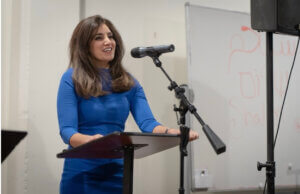
Sam Hyson and Osnat Netzer perform a rendition of Lebanese composer Marcel Khalife’s music called “Ummi” (my mother) which features the poetry of Palestinian poet Mahmud Darwish, in front of paintings in the office of Mishkan Chicago at “Together in Sorrow, Together in Resolve, Holding onto a Vision for All”
Netzer is an Israeli-born composer, pianist, and educator, and Associate Professor of Composition and Musicianship at DePaul University. Hyson plays violin and accordion and performs traditional music from the Middle East, South Asia. Latin America, Europe and beyond.
Program producer, Aliza Becker, a longtime Israeli-Palestinian peace and immigrant rights activist, oral historian, and writer, moderated a panel of guests that included this writer, Kayla Karnesky, Neema Nazem, Mary Nora Maloof Wolf, Osnat Netzer, and Ryan Cohan.
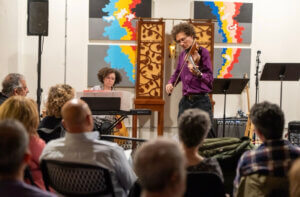
Panelists were asked to respond to three questions: 1. What is your relationship to Western Asia? 2. What’s it been like for you since October 7, 2023? What has been challenging and has there been any silver lining? 3. What do you want from your allies?
“I wanted the participants to have the opportunity to hear personal testimonies from individuals with family members directly affected by the war—spanning Israel, Palestine, Iran, and Lebanon. The impact of war extends far beyond national borders and is especially devastating for those with personal ties to those close to the line of fire,” Becker explained.
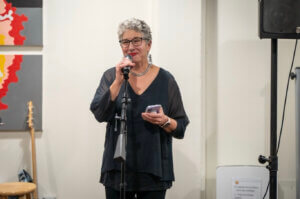
Each of the speakers discussed what it has been like for themselves, their families, and their communities in the wake of the conflict in Gaza.
Karnesky is a Palestinian American theater artist, playwright, and actor whose stories highlight underrepresented voices. Nazem is an Iranian American and a member of the organizing committee of the Illinois Chapter of Standing Together.
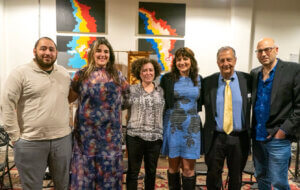
Maloof Wolf is a Lebanese American singer, costume designer, theatre professional, poet, and actor. Cohan is an award-winning jazz pianist and composer, blending world rhythms, traditional jazz, and classical is of Jewish and Palestinian Muslim heritage.
Kayla Karnesky spoke of the fear she experienced after October 7th when she got a call from her mother telling her not to tell anyone she was Palestinian.
Ryan Cohan watched the Arab and Jewish sides of his family become more distant from one another, each sensing an existential threat. “For me,” he said, “there are no sides. I see their common humanity.”
Neema Nazem described his horror at facing the fact that there was nothing he could have done to stop the annihilation of his family when the US threatened to blow up a nuclear reactor near Tehran during the 12-Day War between Israel and Iran. Thankfully, they are all safe.
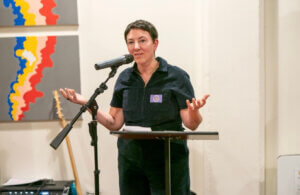
Mary Nora Maloof Wolf recounted how every morning she woke up feeling “connected directly to everyone in Palestine, everyone in Israel, everyone in Lebanon.”
“I can’t stop the problem back home in Palestine, where my mother and father are from, but I can ensure that it doesn’t get bad here, and maybe if it gets better here, we might be able to change the policies so back home it gets better,” Hanania observed.
Osnat Netzer shared her belief that the destinies of Israelis and Palestinians “are intertwined and only by working with each other and having each other’s support can we move things forward.”
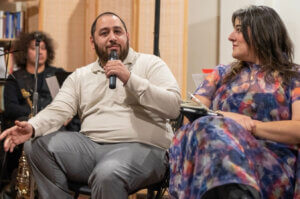
Rabbi Lizzi Heydemann closed the program with some observations about the need for Americans who want to help, to support Standing Together, the grassroots movement of Israeli Jews and Palestinians that the concert was convened to support.
“Their vision is a state with true equality and justice for all its inhabitants, as envisaged by Israel’s Declaration of Independence,” she said.
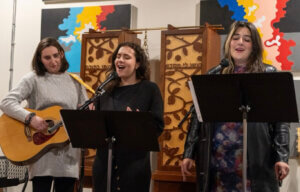
Heydemann is the founder of Mishkan Chicago, an independent Jewish spiritual community in Chicago.
The music director for the evening was Emma Jacobson, a musical theatre student, performer, composer, and Jewish educator who serves as Pre-Rabbinic fellow at Mishkan Chicago.
The website of Standing Together is https://www.standing-together.org/en
(Also, story credit Rabbi Lizzi Heydemann and Aliza Becker.)


Click to Subscribe
 Click to get Info
Click to get Info
- Arab and Muslim Americans rally for 8th Illinois House District candidate John Harrell - February 13, 2026
- Adalah: Deportation Orders against Palestinian Citizens of Israel Violate Fundamental Human Rights, International Law - February 11, 2026
- Senators Shaheen, Reed, Warner, Murray, Durbin, Schumer, Coons and Schatz Urge President Trump to Oppose Israeli Settlement Expansion in the West Bank - February 11, 2026

